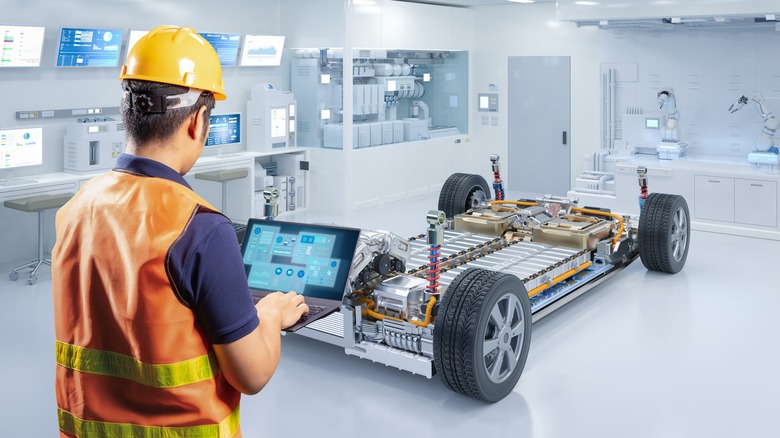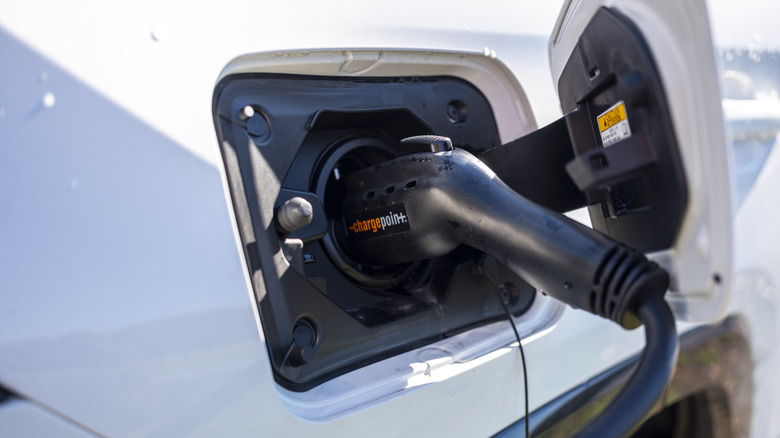Why Electric Car Batteries Are So Expensive To Build And Replace
Electric vehicles come with undeniable environmental and economic benefits: there are no tailpipe emissions to contribute to accumulating greenhouse gases, the cost of charging most EVs is still less than filling the tank of most gas-powered vehicles, and there are numerous tax credits and rebates available to EV purchasers. However, the widespread production and use of EVs come with hidden costs. The batteries used in EVs require massive amounts of lithium and cobalt, materials that come from mines in the Congo and China that employ children and slave labor.
As the focus on the human rights costs involved in the production of EV batteries grows, so too will the price of those batteries as their manufacturing moves to more expensive locales. International politics can also be a factor. Just after Russia invaded Ukraine last Spring, the cost of the amount of nickel, lithium, and cobalt to build a battery big enough to power a large SUV shot up more than 400%. This is due in large part to the fact that Russia controls 11 percent of the world's supply of nickel.
EV batteries degrade quickly with charging and discharging
A large part of the problem with EV batteries is that they lose some of their capacity with each cycle of charging and discharging. Lithium-ion batteries in particular can be damaged by the heat generated during rapid charging or can have their capacity diminished by being drained too low.
To get the most life from your EV battery bank, charge your batteries slowly and try to keep your batteries between 20 and 80 percent charged at all times. Keeping your EV in this sweet spot can help avoid overheating which will reduce its ability to hold a charge over time and delay the costly replacement of your battery packs.
The price of replacing some EV batteries can be as much as $20,000 or more, making such an operation cost-prohibitive for many owners. Innovations may be on the way, however. EV and battery manufacturers like Tesla and BYD are working on ways to minimize wasted space in EV batteries and integrate the fuel cells into the structure of the vehicles themselves, minimizing heat generation and battery degradation over time.

